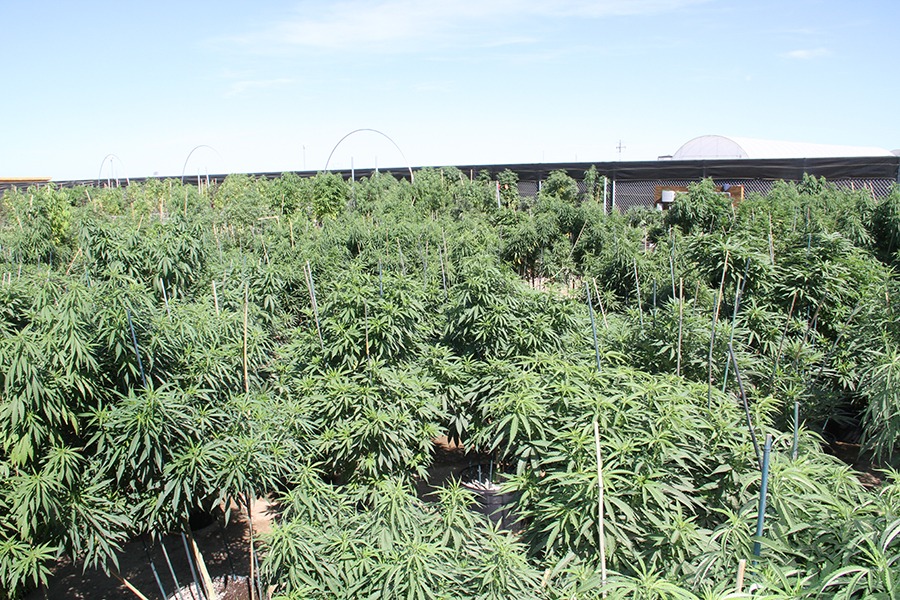Tribal leaders should take caution before diving into industry
By Jana Weltzin
There’s been a lot of recent activity regarding the involvement of Indian nations in the emerging cannabis market. The murky waters of tribal enterprises swirl with unanswered questions and faulty assumptions.
Will the Feds shut down tribal businesses? Do they have to deal with IRC 280E? Do they have to pay federal taxes at all? What about state and excise taxes? What state laws are applicable? With the federal government refusing to provide anything other than conditioned guidance, tribal leaders get stuck in yet another legal conundrum.
To begin our analysis of when and how an Indian nation may engage in the cannabis industry, we need to start with the initial question — what is Indian Country?
Indian Country is the phrase often used by courts to determine the limits of a state’s power over an Indian community. There are three categories of Indian Country, according to federal law:
– All lands within the limits of an Indian reservation under the jurisdiction of the United States government, notwithstanding the issuance of any patent, and including rights of way running through the reservation;
– All dependent Indian communities within the borders of the United States whether within the original or subsequently acquired territory thereof, and whether within or without the limits of a state; and
– All Indian allotments, the Indian titles to which have not been extinguished, including rights of way running through the same.
If the land in question meets one of these three categories to be considered Indian Country, the next factor to consider is the law regarding commercial sale of marijuana in the state where the property is located. States cannot regulate an industry activity on tribal lands if state law permits such activity, according to the Cabazon decision by the U.S. Supreme Court in 1987 (California v. Cabazon Band of Mission Indians). The court determined that since some form of gaming was allowed under state law, the state could not prohibit or control the activity on tribal land.
Generally speaking, primary jurisdiction over Indian Country rests with the federal government and the Indian tribe inhabiting it, and not with the states. In states where the sale and production of cannabis remains illegal, tribes are on dicey grounds if they attempt to assert sovereignty and move forward with a tribally-sanctioned cannabis operation.
On Oct. 28, 2014, the U.S. Department of Justice issued a memorandum that gave conditioned guidance to tribal entities, while reiterating the Cole Memorandum priorities as guiding principles. The Department of Justice’s third enforcement priority — “preventing the diversion of marijuana from states where it is legal under state law in some form to other states” — is particularly relevant to tribal operations.
In states where marijuana production and sale remains illegal, a tribal nation would be unwise to sanction operations on its land. The Cabazon decision permits activities on tribal land and exempts the same from state regulation only if the state allows some form of that activity.
Additionally, the Department of Justice memorandum noted that its guidance rests on the expectation that state and local governments enact commercial marijuana laws that implement a strong and effective regulatory system to address the threats to public safety, health, etc. A regulatory scheme must not only be comprehensive on paper, but also in practice. When determining whether to engage in this market, tribal leaders must draft, approve, and most importantly, enforce a solid regulatory scheme to control and manage commercial cannabis operations on their land.
Tribes must also consider the potential upsides before jumping head-first into the cannabis industry. Revenue generation? Economic growth? Market advantage? Cultural impact — either positive or negative? Many of the answers to these questions will depend on the particular tribe, surrounding communities and demographic of the tribal members.
However, it’s clear that with the right actors, structure and regulatory scheme, an Indian tribe engaging in the cannabis industry has an incredible tax advantage over the rest of the industry.
Income derived from Indian Country by tribal members is typically not subject to state or federal taxation, unless otherwise indicated by Congress. Tribes that meet the qualifications may conduct commercialized marijuana production and sales without paying state excise and retail taxes or federal income tax.
Although this sounds like an amazing opportunity for Indian communities to engage in further economic development, they must tread with caution. Federal Indian law is a tricky subject matter due to the numerous and ever-changing laws. How the land is titled, transferred and restricted plays a huge role in determining whether you are dealing with true Indian Country or simple fee title land. Employ an expert to help navigate this area — and understand that this is a legal gray area so the answers to some questions are yet to be determined.
Jana Weltzin is the owner of JDW, a law firm in Anchorage, Alaska (jdwcounsel.com). She advises clients in the cannabis industry in Arizona and Alaska. She assists clients with business structure, compliance with state and local laws, zoning approval, site selection and product regulations.


